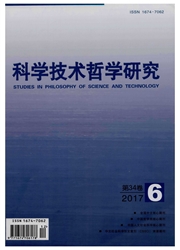

 中文摘要:
中文摘要:
直觉是思辨哲学的核心工具,证据表明直觉具有多样性、可变性乃至易变性。来源上,哲学家直觉与公众直觉均系后天习得而非先天生成;效应上,直觉对经济因子、文化因子、语境架构、顺序效应、专业规训等多重因素敏感,表现出显著的“地方性”。忽视或误解直觉的地方性引起了多种哲学问题。哲学家援引自己的直觉论证是一种“自我抽样”,在方便取样的同时也存在一些问题。今天我们已经有机会、有能力倾听公众到底在想什么、做什么,怎么想和怎么做的,公众足以代表他们自己而无需直觉上任何来自哲学家的“代议”;这是哲学上一种不可逆的民主化进程,直觉上的“哲学家独裁”难以为继。我们应当将哲学视为一种广义经验科学的“爱智之学”。
 英文摘要:
英文摘要:
Intuition plays a core role in philosophy in general and in Armchair Philosophy in particular. In the ori- gin, the intuition of the philosopher and that of the public are acquired rather than congenital. In the effect, one' s intuition is sensitive to his socio-economic status, the cultural factors, his contextual framework, the sequence, his professional discipline and many other factors, showing that it is noticeably local. In fact, intuition is diverse, instable, variable and mutable. It is convenient but problematic that the philosopher cites his own intuitive argu- ment which can be seen as "self-sampling". Because of the limitations and the significant differences between phil- osophical and folk intuitions, it' s inappropriate for the philosopher to "represent" the general public in intuition. It is an irreversible process of democratization in philosophy and it' s hard for the philosopher to continue autocracy in intuition. It' s wise for us to take philosophy as a general empirical science.
 同期刊论文项目
同期刊论文项目
 同项目期刊论文
同项目期刊论文
 期刊信息
期刊信息
